Pakistan Islamist protesters end four-day blasphemy protest
- Published
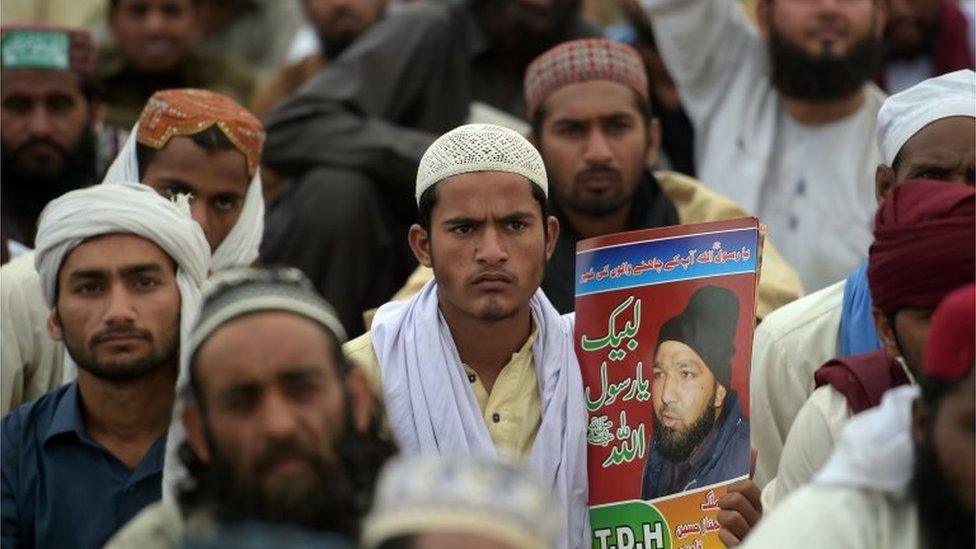
Supporters of the executed police guard had been camped out in central Islamabad since Sunday
Hard-line Islamist protesters who overran a security zone in Pakistan's capital dispersed after assurances the government had no plans to amend the blasphemy law, a minister says.
Khawaja Saad Rafique took part in talks with religious leaders to end the four-day demonstration in Islamabad.
The riots began after the execution of a police guard who killed a politician for advocating blasphemy law reform.
There had been a threat to clear the thousands of protesters by force.
They had been calling for the immediate execution of Asia Bibi, a Christian woman convicted of blasphemy.
Critics say Pakistan's blasphemy laws, which allow the death penalty to be imposed in some cases, are often misused to oppress religious minorities.
Ms Bibi's case was championed by moderate Punjab governor Salman Taseer before he was shot dead by police guard Mumtaz Qadri in 2011.
Qadri's supporters say he is a hero and should be considered a martyr.
Mr Saad Rafique, the railway minister who was involved in negotiations, said an understanding was reached over a number of issues.
He said there were verbal clarifications that the government did not intend to offer any extraordinary concessions to blasphemy convicts.
The BBC's M Ilyas Khan in Islamabad says the clerics were also told to submit their proposals for the imposition of Sharia, another of their demands, with the ministry of religious affairs.
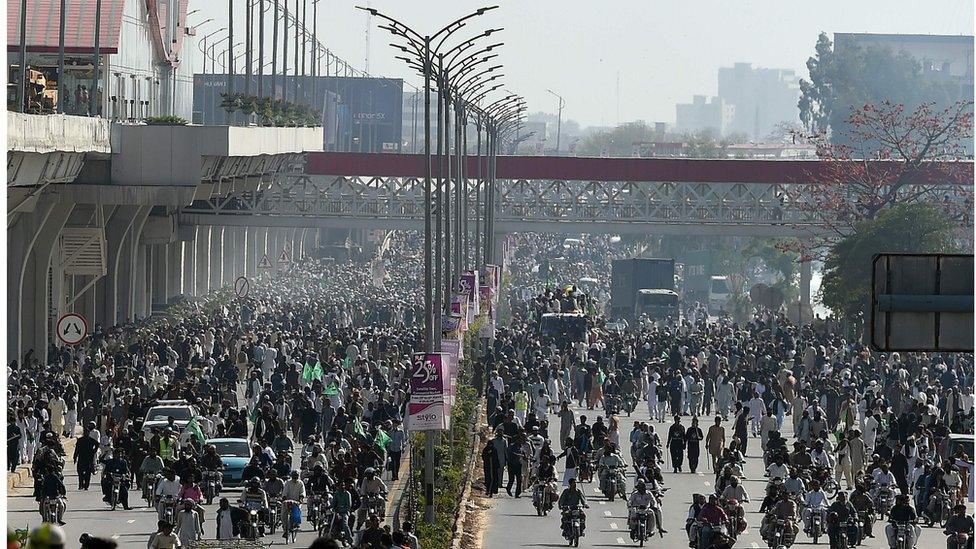
Some estimates said there were more than 10,000 people at the rally on Sunday
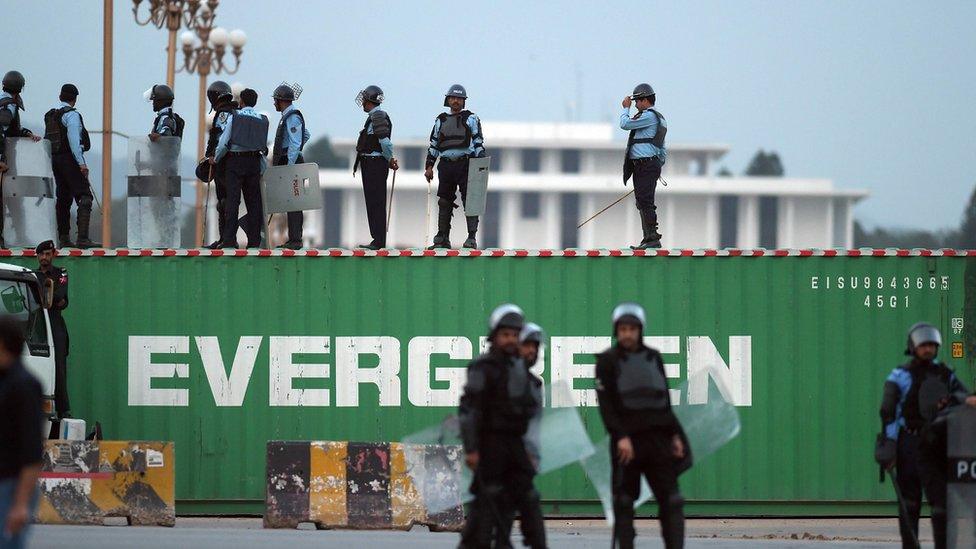
Hundreds of police and soldiers kept the protesters contained
Our correspondent says some 600 troops and around 7,000 police and paramilitary personnel had been deployed at the government's request in Islamabad's Red Zone where government buildings are located.
Over the four days the number of demonstrators diminished from at least 10,000 to about 1,000.
Interior Minister Chaudhry Nisar Ali Khan said more than 1,000 people had also been arrested - and only those found to be involved in any violence would be charged.
"We will release them gradually after checking details of their offences," he said.
The protests in the capital have once again highlighted Pakistan's deep divisions over its battle with extremism.
- Published28 March 2016
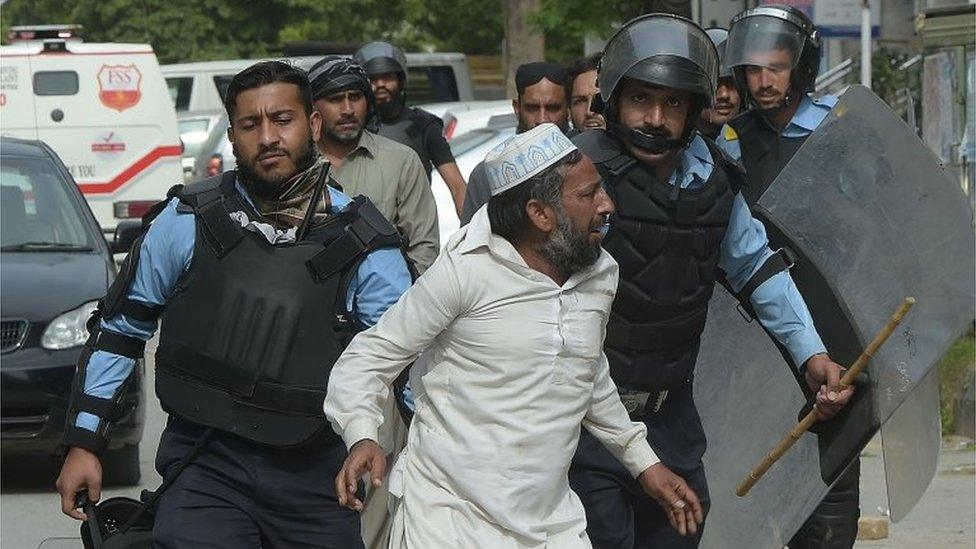
- Published1 March 2016
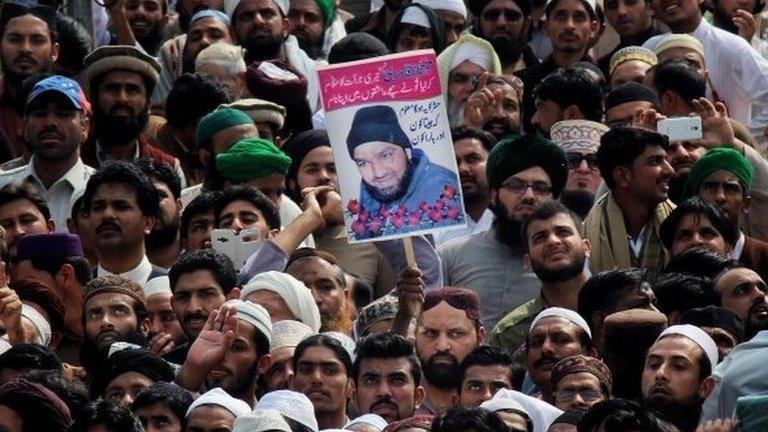
- Published25 March 2016
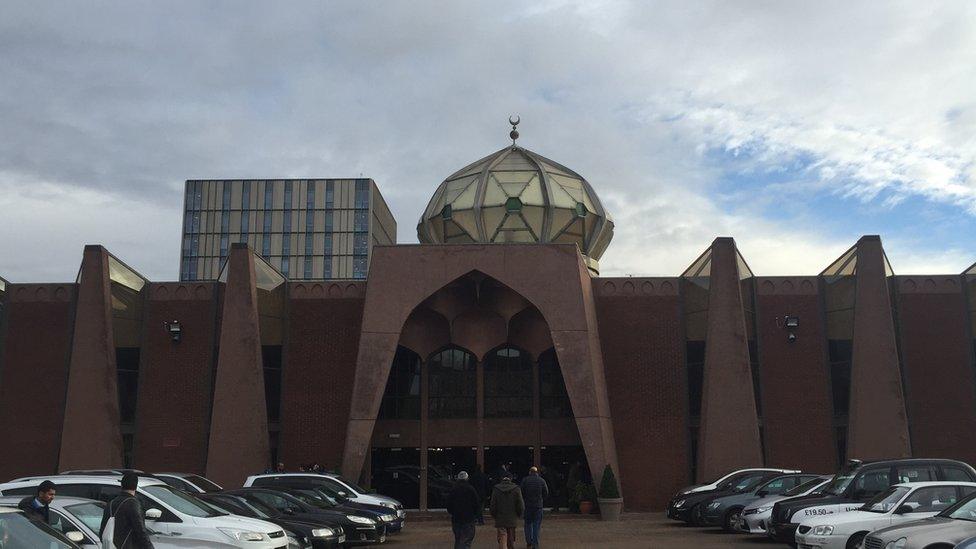
- Published1 March 2016
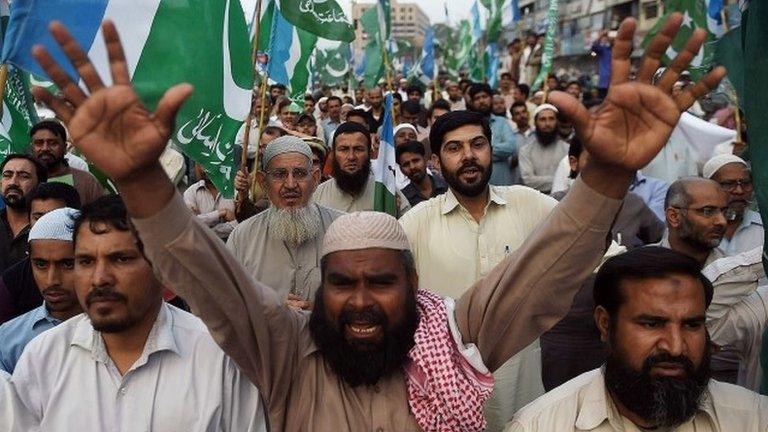
- Published14 January 2011
- Published5 January 2011